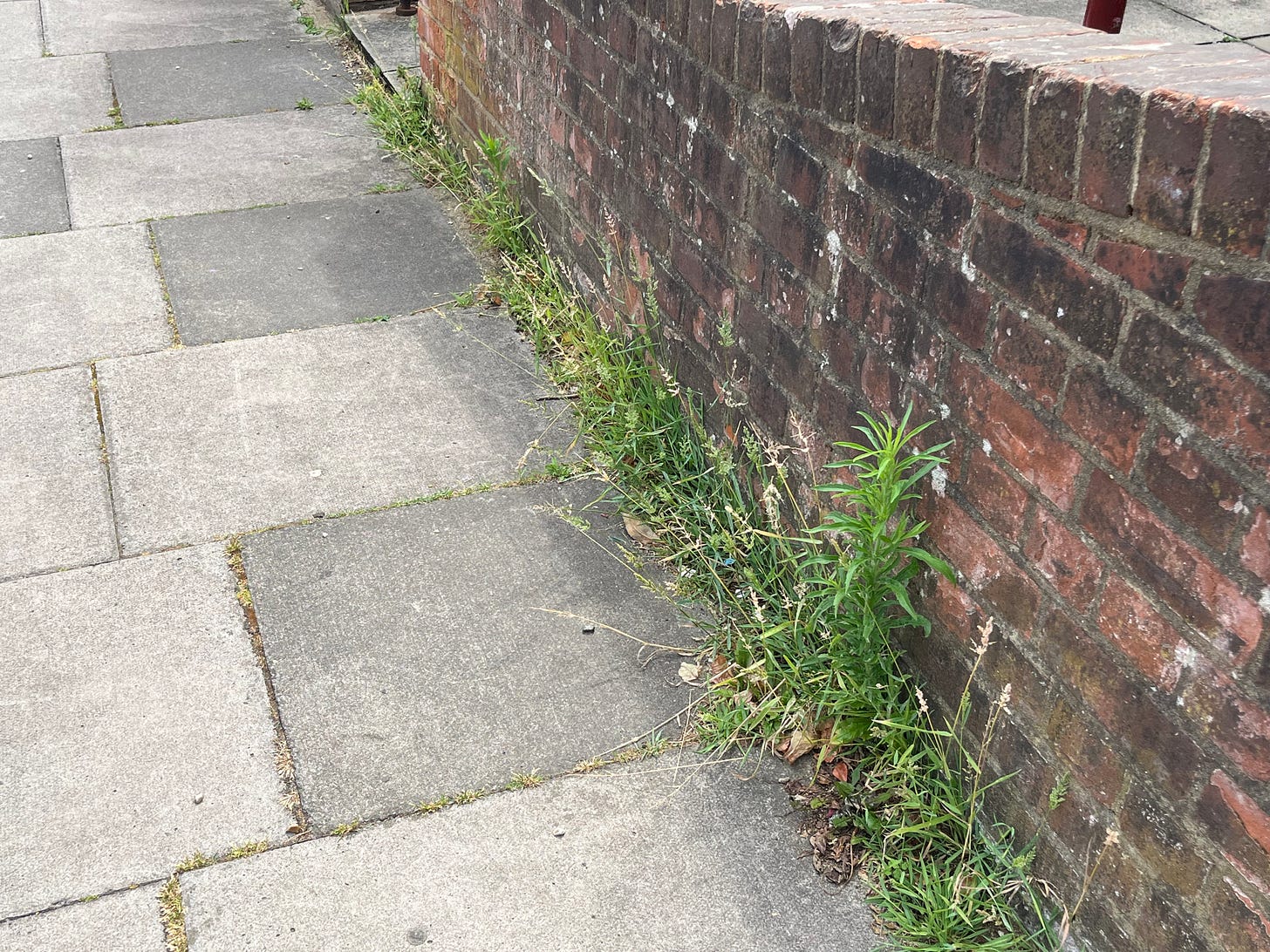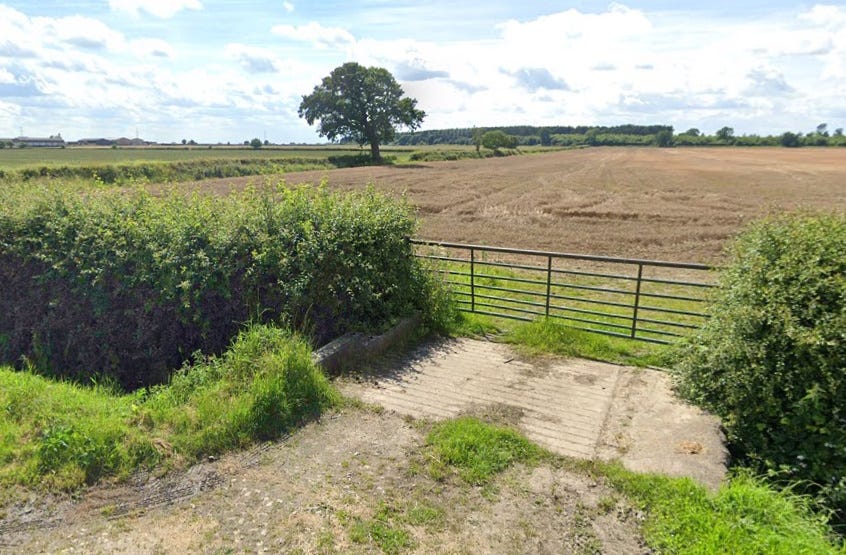Measuring our climate change progress
A look at the progress being made on local climate change goals plus the lynx effect when it comes to re-wilding and other news from the region.
Good morning! I’m Sarah Hartley and this is The Northern Eco weekly update. As you’ve received this newsletter then either you subscribed, or someone forwarded it to you. If the latter, then you can click on this handy little button below.
There’s been a lot of news around nationally about the UK’s climate goals - and some of it is, refreshingly, good news!
Like this report from John Barrett at The Conversation which includes the news that the UK halved its greenhouse gas emissions between 1990 and 2024, primarily by decarbonising the power sector, improving energy efficiency and shifts in the industrial base.
But what activity is happening on a local level? What’s going on with councils and other layers of government in North Yorkshire and the North East? We dive into some of the latest data below for a long read to start your day.
Plus there’s also:
🌿 The latest in our In the Weeds campaign about pesticide use
⚠️ Incinerator campaigners in County Durham get a longer time for consultation but no meeting
🌏 A surprise announcement on fossil fuel divestment
For the second year, Climate Emergency UK has undertaken an assessment of what councils can do for climate action, what they can do to lower carbon emissions, cut residents' energy bills, protect and create more space for nature and provide better public transport, among other things.
Across the country, councils run by different political parties (Labour, Conservative, Lib Dems and in No Overall Control) all saw their scores increase, showing commitment to cutting costs and improving the lives of residents by tackling the climate emergency. This aligns with residents' desires: the most recent poll in the UK showed that 72% of people, up 8 percentage points since 2022, are concerned about the impacts of climate change.
The scorecards produced are created by assessing councils according to a three stage marking process using primarily publicly available data from council websites, available before November 2024, as well as national data and Freedom Of Information responses from councils from Autumn 2024.
Topics they are scored against include building, land use, biodiversity and waste reduction. So how did our region fare?
Across the North East
In brief: Northumberland County Council has made rapid progress on its climate action goals.
The council improved its climate action results by 12% between 2023 and 2025, growing faster than any other local authority in the North East.
But, with a score of 38% for its 2025 scorecard, it is only the third-highest scoring council in the region for climate action, behind Durham and Newcastle Councils, tied on 43%. Graeme Anderson at the Northumberland Gazette has the full report.
In York and North Yorkshire
In brief: York and North Yorkshire councils score above average on climate action but fall short of top scorers.
City of York and North Yorkshire councils were rated above average for climate action.
The City of York and North Yorkshire Council both scored higher than the average score of 37% across Yorkshire & The Humber, scoring 43% and 42% respectively. However, both councils fell short of being Yorkshire top scorers with West Yorkshire Combined Authority scoring 56% and Leeds City Council scoring 49%.
The West Yorkshire Combined Authority was the only Yorkshire authority to join the 62 UK councils scoring 50% or more on climate action.
Whilst UK average scores remain low at 38%, 80% of all UK councils saw an increase in their Scorecard results since 2023. The City of York increased their score by 8 percentage points, higher than the average score increase across the UK of 6 percentage points.
Annie Pickering, Operations Director at Climate Emergency UK, said: “The majority of councils across Yorkshire have improved their Scorecard results since 2023, showing that councils, along with residents, want to prioritise climate action to improve their lives and communities.
"Yet the average overall score increase across Yorkshire and the UK since 2023 was just 6 percentage points. This shows that councils across the UK are struggling to step up their climate action at the emergency pace needed because there are nationwide barriers making it harder for councils to deliver effective climate action that would cut residents’ bills, make their homes warmer and raise funds for cash strapped local governments.
“These Scorecards provide proof of where councils need real investment from the national government so that every council can improve their score by 20 percentage points or more each time to make real progress towards cleaner, safer and more prosperous zero emission communities.”
Despite the small overall improvement, there are 58 councils across the UK that scored over 80% in one or more sections, such as Planning & Land Use, Buildings & Heating and Transport. Across Yorkshire only Leeds City Council and West Yorkshire Combined Authority (WYCA) scored above 80% on any section, with Leeds scoring an impressive 92% in Planning & Land Use and the WYCA scoring 82% in Buildings & Heating and Green Skills.
The report’s producers say this shows those councils are taking significant action to make new and existing homes low emission, warmer and cheaper to heat by having strong climate commitments in their Planning policy. They also work with others to improve the retrofit skills available in the local area and provide funding and advice to residents on retrofitting.
Explore your own council here.
Down to the Dales

In a separate move, last week also saw the launch of the Yorkshire Dales National Park Management Plan for the period 2025-2030 The 40 objectives have been developed and agreed by a partnership made up of government agencies, local authorities, and representatives from rural estates, farming and tourism businesses.
The management plan will guide the work of all the organisations that operate in the National Park during the next five years. Twenty-four different organisations have lead responsibility for one or more of the objectives. At least 60 other organisations (or groups of organisations) will help support the delivery of objectives.
Reports elsewhere have focussed on important changes to the second home policy for new build housing in the Park (Read Joe Willis at the Yorkshire Post on that) but I wanted to hone in here on the climate change aspect.
The authority’s overarching goal for this topic is to be “resilient and responsive to the impacts of climate change, storing more carbon each year than it produces.“ To achieve that there’s eight objectives and of those only two have been achieved to date.
The two marked as achieved are:
woodland creation with just under 300 ha of native broadleaved and mixed woodland planted over the 2023/24 planting season.
completion of an interactive habitat map which is now available to view on the National Park Authority’s website.
The two which haven’t even started are:
preventing invasive, non-native species
woodland management where the amount of woodland in active management has actually fallen - 61% of woodland in the National Park is in active management (March 2024), down from 65% in 2019.
Introducing that report, the Chair of the Yorkshire Dales National Park Authority, Derek Twine, described the work as “an ambitious – but necessary – programme of work to which many local organisations have committed their support.”
“Whilst it rightly focuses on tackling the challenges of climate change and the continuing decline in nature, it also identifies other opportunities to foster the social and economic wellbeing of local communities, by setting out objectives for more affordable housing, hyperfast broadband access, and support for viable farming businesses.”
Do you agree? We’d love to hear what you think of the plan, its priorities and progress.
Thank you for reading edition number 141 of The Northern Eco. I hope you’ve enjoyed being kept in know about environmental issues. We produce this newsletter on a Pay As You Feel basis so, if you feel it’s worth a few quid, now’s the perfect time to join our paying subscribers. The main newsletter is sent out at 7am every Tuesday and can’t exist without our paying subscribers . 🙏
Latest from In the Weeds
While most councils still rely on glyphosate to control weeds, Chiswick in the London borough of Hounslow banned the pesticide years ago. How's that gone? I look at the lessons that campaigners in other areas can learn from their experience.
The three most clicked links from last week were:
What’s on: Eco events for July
In other news
🌏 In an age where political announcements are highly stage managed, it’s almost unheard of to get a pretty major policy shift mentioned in an obscure sub-committee but…here we are hearing that North Yorkshire pensions will no longer be invested in Shell or BP.
🌳 Ahead of the Lynx UK Trust’s application for a trial return of lynx to Kielder in Northumberland, the government’s wildlife regulator has said he remains enthusiastic about reintroducing the cat to Britain. The reintroduction would use wild animals rescued from culls in Sweden, reports Patrick Barkham in The Guardian.
💦 Members of Harrogate Extinction Rebellion took to the River Nidd to highlight concerns about the state of the water, reports John Plummer at The Stray Ferret. The campaigners pretended to fish turds from the water in Knaresborough shortly after more than 500 people waded through the Nidd for the town’s annual bed race.
⚠️ A meeting between the Environment Agency (EA) and residents to discuss plans for an incinerator to burn hazardous and clinical waste has been cancelled. The facility, on Heighington Lane in Newton Aycliffe, County Durham, has already been built by Fornax North East but now requires an environmental permit, reports Tom Burgess at the BBC. The date the consultation closes has changed. This was originally Friday 27 June, and has been extended to Friday 18 July. (EA Press Release)
Solar farm and battery storage planned for farmland
A proposal to build a large solar farm and battery energy storage scheme (BESS) on green belt agricultural land north of York has been drawn up.
💦 The Health and Safety Executive (HSE) has appealed against a decision by the Information Commissioner that they should disclose various farmers’ pesticide use records. In its latest legal update, WildFish lawyers say they are leading the charge to ensure that academics, conservation groups and the general public have the right to know what pesticides are used, on what land, and in what quantities - particularly where those pesticides end up being washed into streams lakes and rivers where they affect aquatic ecosystems.
🔥 Staff at Coatham Marsh Nature Reserve have been left shocked and deeply concerned at the latest incident in an alarming increase in fires on nature reserves and other countryside sites within the Tees Valley region. They say there’s strong reason to believe that this fire was started deliberately. Full report here.
🪶 More than 500 bird species could vanish within the next century, researchers have found, calling for urgent “special recovery programmes” such as captive breeding and habitat restoration to rescue unique species, writes Phoebe Watson at The Guardian.
That’s it for this week but don’t forget there are updates on the website and via social media through the week too.
Have a great week!






